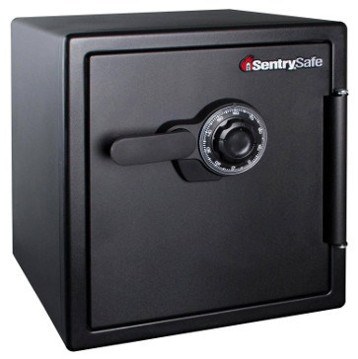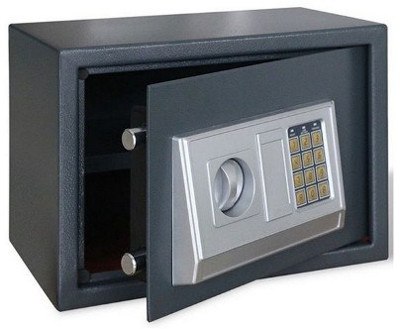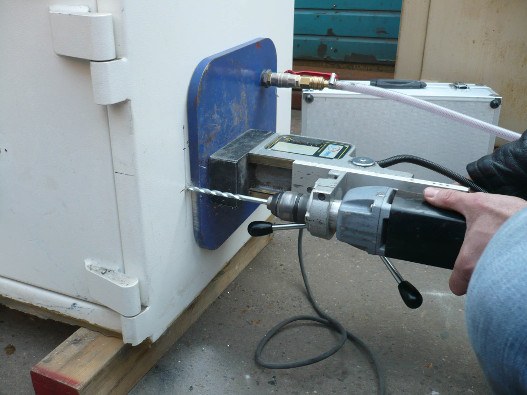A sturdy safe will protect your most prized possessions against all sorts of threats. But if you lose the combination then your safe becomes inaccessible. Thankfully, all is not lost in such a situation. It's possible to open a safe even when you have lost its combination. All you need to do is follow the steps outlined in this article.
Types of Safes
There are many different types of safes on the market right now. Gun safes, fireproof safes, de-mountable safes, and luxury safes are all available. But most safes can be placed into one of two categories: dial safes and digital safes.
Dial Safes

A dial safe is the traditional option and they have been in use for hundreds of years. The typical dial safe features a dial on its exterior which unlocks the door when turned in a specific pattern. Many people prefer dial safes to digital safes because they don't rely on power cords or batteries. Therefore they won't be affected by power outages. Dial safes also tend to be more resilient and they usually last longer than digital alternatives. A quality dial safe can last you a lifetime and it won't be rendered obsolete by modern technology.
Digital Safes

Digital safes are more widely available, and businesses generally prefer digital safes to dial safes. A digital safe is particularly useful in a work environment because its combination can be easily changed when an employee leaves. Digital safes are also popular for personal use.
Most digital safes penalize multiple incorrect password entries by disabling their keypad for a period of time. This has its pros and its cons. A security lockout feature enhances the overall dependability of a safe. However, it also means that inadvertently hitting one wrong key three times in a row can leave you locked out of your safe. This may seem unlikely at first, but it becomes a legitimate possibility when trying to open your safe in a hurry.
Opening a Safe Without the Combination
The internet is filled with supposed methods of cracking open a safe. However the vast majority of them involve damaging the safe, which should be a last resort. Below we'll review the best ways to open both a dial and digital safe.
For a Dial Safe
Here the steps for a dial safe:
- First you must find the safe's emergency key. You almost definitely received an emergency key when you purchased your safe. Let's hope you can remember where you put it, because you're going to need it to properly open the safe without the combination. Otherwise you would need to crack the safe by force.
- Remove the panel that covers your safe's dial. Removing the dial panel is usually fairly easy and can be done using your bare hands. Attempting to pry the panel from the dial using a fork or similar tool is ill-advised and will likely damage the exterior of your safe.
- Once you have removed the dial panel, take a look beneath the dial itself. There you should find a small round notch. This is the emergency keyhole. The emergency keyhole is usually designed to blend in with the safe, so you may not spot it right away. It's worth noting that not all manufacturers place the emergency keyhole beneath the dial. You might find your safe's emergency keyhole to the side of the dial.
- Insert the emergency key into the emergency keyhole and turn it until the safe opens. Be sure to return the key to its original position before removing it. Neglecting to do so may result in the safe failing to lock or the emergency key failing to work the next time you need it.
For a Digital Safe
Here are the steps for a digital safe:
- Some digital safes have emergency keys. But if your safe doesn't then you need to press the reset button. To do this you must first locate the safe's bolt openings. These bolt openings can usually be found on the back of the safe. Some smaller digital safes may have their bolt openings on the base.
- Once you have located your safe's bolt openings, take a flashlight and shine it through each opening. Move from bolt opening to bolt opening until you find one that allows you to clearly see the safe's interior keypad.
- Once you have located your safe's interior keypad, find a rod that is long and thin enough to fit through the corresponding bolt opening. An uncoiled wire hanger is a good option, but you can use whatever you want as long as it gets the job done. Push the rod into the safe and hit the "reset" button on the interior keypad. It may be necessary to hold the button down for ten seconds or so.
- Enter your new combination on the safe's interior keypad and hit the "set" button. Most digital safes will emit a beeping noise when a new combination has been set. If you don't hear one right away, hold the "set" button down. If ten seconds pass without a sound, then assume your code has been set.
- Remove the rod from your safe. Enter your new combination on your safe's exterior keypad to ensure it was set correctly. If your safe fails to open, then you'll have to take your rod and repeat the process.
The Brute Force Option

There are a number of brute force techniques that are used to crack open a safe. Drilling is perhaps the most common of these techniques. As you likely guessed, this involves drilling a small hole in the safe and picking the lock from the inside. Drilling is usually only effective in older safes. Most modern safe manufacturers design their locks to be impervious to picking from all angles.
When trying to unlock a newer safe, you may be forced to use a saw or blowtorch. While effective, there is a lot of effort involved. It should be treated as a last resort and avoided until all other methods of opening your safe have been exhausted.
Taking Your Safe to a Locksmith
If you have forgotten the combination to your safe then you always have the option of taking it to a locksmith.
Taking your safe to a locksmith has its pros and cons. Its major advantage is that it's far less time-consuming than the DIY methods outlined above. If you are short on time or if the task is difficult, then hiring a locksmith is a good option.
It's important to remember that locksmiths are expensive to hire. Therefore you should be prepared to pay a lot of money to get your safe open. Also, the vast majority of techniques employed by locksmiths result in lasting damage to the safes.
We suggest that you try to open the safe yourself when possible. While it requires more time and effort, it's far more cost-effective than taking your safe to a locksmith.
Conclusion
Opening a safe without the necessary combination can be a challenge. However it's far from impossible. The methods outlined above are tried and tested. As a last resort you could also take your safe to a locksmith.
See also:
How to Hide a Home Safe